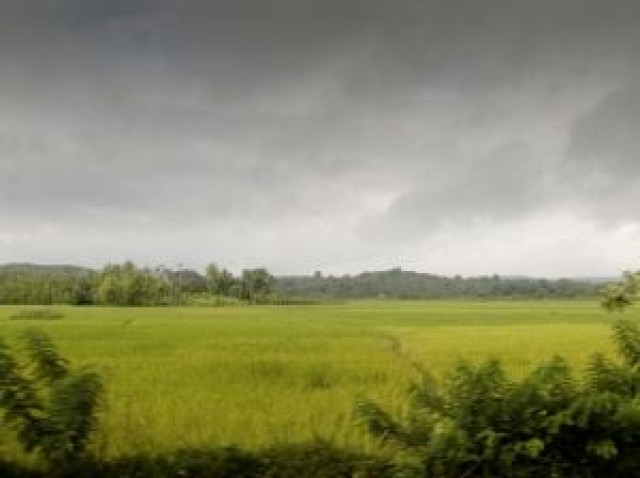Monsoons could wreak havoc if food insecurity not addressed: speakers
No one has owned up to the issue following health ministry’s devolution.

The monsoon season could wreak havoc this year if Pakistan fails to combat its current malnutrition issues. At the moment, things look bad, as the issue of nutrition seems to have been orphaned following the devolution of the Ministry of Health (MoH) under the 18th Amendment, said a speaker at a discussion on Monday.
The discussion was organised by the Aga Khan University’s (AKU) Division of Women and Child Health (DWCH) in coordination with University of Sussex’s Institute of Development Studies here at a local hotel.
Participants included AKU DWCH Head Professor Zulfiqar Ahmed Bhutta, high officials of National Disaster Management Authority (NDMA), representatives of National Food Security and Research, Pakistan, World Bank, The Department for International Development (DFID), AusAID and health officials from all provinces.
The discussion was based on the alarming results of National Nutrition Survey 2011, according to which over half or 58% of all households in Pakistan are food-insecure. Sindh and Balochistan top the list with 72 and 63.5% of households respectively without consistent access to enough food for active healthy living.
Participants at the discussion said that after the devolution there is nothing on federal or provincial level to look at nutrition as a whole. The few programmes that are being run on this subject are not sufficient. Even the Ministry of Food Security and Research has not adopted this subject as a whole, said a participant.
“Somebody needs to come forward and take the responsibility to work on nutrition,” said one participant.
Dr Baseer Achakzai, director NDMA and former National Manager Nutrition Programme at MoH, said malnourished mothers giving birth to malnourished children who in turn burden the country’s economy due to weak health.
He said all provinces should own nutrition, funds, human resources, and technical data should be provided to them so that they can plan strategies while keeping in view the guidelines given in the National Nutrition Survey 2011.
NDMA Chairman Dr Zafar Iqbal Qadir said if accurate data and other important information is provided, then NDMA is ready to own nutrition as a whole and will come up with a strategy to combat food insecurity.
Published In The Express Tribune, June 6th, 2012.



















COMMENTS
Comments are moderated and generally will be posted if they are on-topic and not abusive.
For more information, please see our Comments FAQ